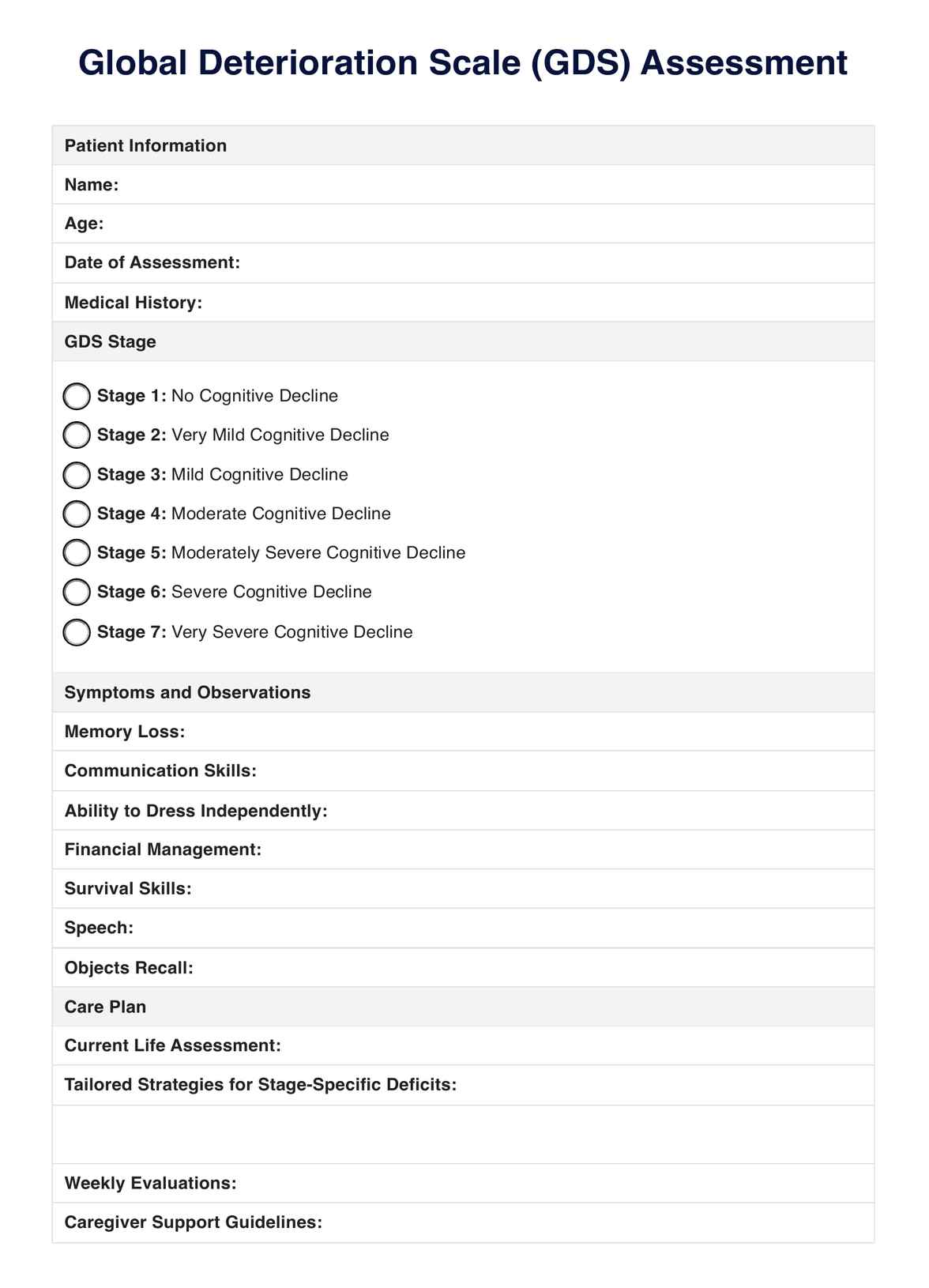The Global Deterioration Scale (GDS) assesses individuals' cognitive decline stages, particularly in dementia.

Global Deterioration Scale
Unlock insights into cognitive decline with our guide on the Global Deterioration Scale – your roadmap to understanding and navigating dementia stages.
Use Template
Global Deterioration Scale Template
Commonly asked questions
The GDS consists of seven stages ranging from normal cognitive function (Stage 1) to severe dementia (Stage 7), offering a comprehensive framework to evaluate the progression of cognitive impairment.
The Global Deterioration Scale (GDS) was developed by Dr. Barry Reisberg and his team at New York University's School of Medicine in the 1980s.
EHR and practice management software
Get started for free
*No credit card required
Free
$0/usd
Unlimited clients
Telehealth
1GB of storage
Client portal text
Automated billing and online payments











